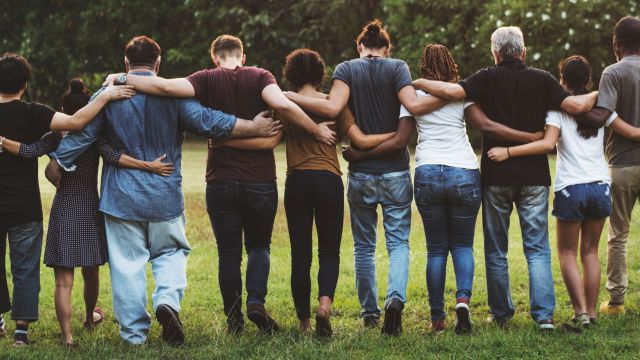Updated on November 15, 2022.
In the military, you were used to a steady routine and friendships with other Servicemembers. At home as a Veteran, it can feel disorienting to lose that support, especially when you first transition to civilian life. Establishing social connections—meaningful, rich relationships with other people—can help smooth the adjustment and make you emotionally and physically healthier.
Making the transition
A lot of Veterans experience an adjustment period after coming out of the service. You may be dealing with medical conditions, feeling stressed by having to get a new job, or handling relationship pressures. Because of that, some Veterans experience feelings of anger, irritability, tension, and sadness.
When those feelings are intense, it can feel harder to be more socially active, especially when those around you may not understand your military service or ask inconsiderate questions. But even when it feels like the last thing you want to do, creating social connections can be a powerful health booster.
Health advantages
When you develop and maintain strong social connections, the benefits extend across every part of your life, from physical health to mental resilience.
Foremost, it can help prevent loneliness and isolation, common issues for Veterans. These feelings may prompt symptoms of depression including lack of motivation, fatigue, and indifference. In severe cases, it can also cause thoughts of suicide, and the risk for suicide is significantly higher among Veterans compared to those who have not served. Feeling connected, whether it's with your partner, friends, family, community—or even with your pet—can give you a new sense of purpose and meaning and may ward off loneliness.
Being socially connected has physical benefits, as well. Strong social ties can lower stress, which may benefit blood pressure, cholesterol, and other factors related to your cardiovascular health. Reduced stress can also help your immune system operate more efficiently, resulting in better health overall.
Tips to get connected
Establishing social connections can sometimes be challenging, but a good starting point is seeking out local resources such as clubs, volunteer opportunities, sports teams, or a spiritual refuge. You can also sign up for classes as a way to meet new people and sharpen your skills, or reach out to other Veterans and Veterans’ groups for support.
In the meantime, if you’re feeling overwhelmed or anxious about social interactions, consider talking with a mental health professional or seeking resources from the Department of Veterans Affairs (VA). If you need immediate help, dial the Veterans Crisis Line at 1-800-273-TALK (8255) and press 1 or text 838255.







